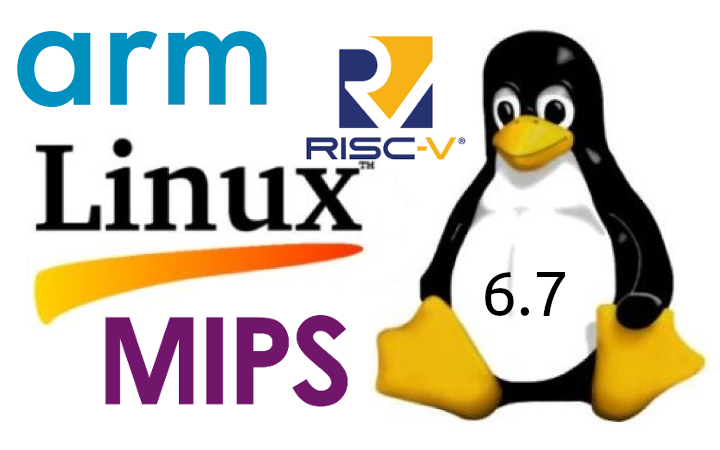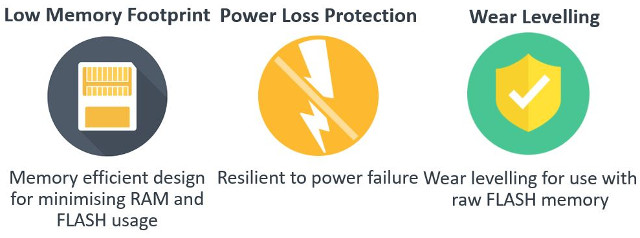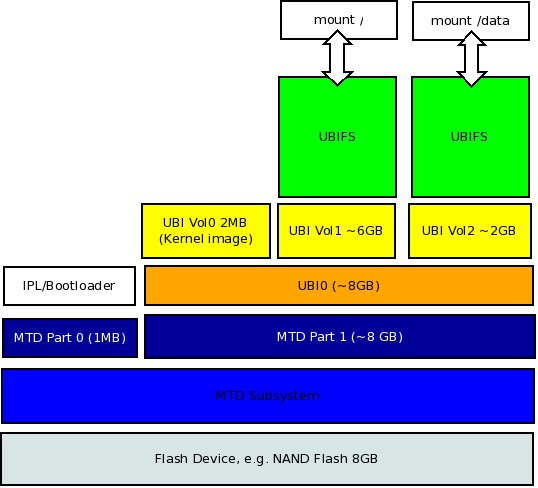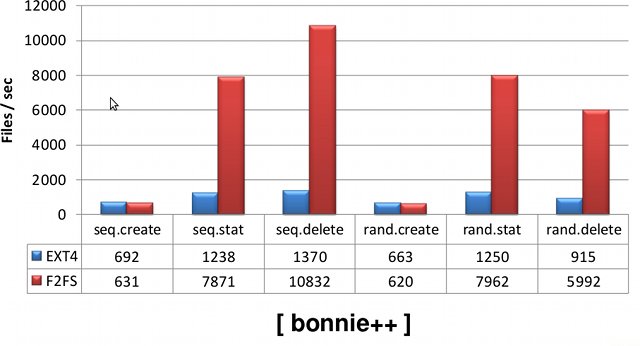Linus Torvalds has just announced the release of Linux 6.7, following Linux 6.6 LTS a little over two months ago: So we had a little bit more going on last week compared to the holiday week before that, but certainly not enough to make me think we’d want to delay this any further. End result: 6.7 is (in number of commits: over 17k non-merge commits, with 1k+ merges) one of the largest kernel releases we’ve ever had, but the extra rc8 week was purely due to timing with the holidays, not about any difficulties with the larger release. The main changes this last week were a few DRM updates (mainly fixes for new hw enablement in this version – both amd and nouveau), some more bcachefs fixes (and bcachefs is obviously new to 6.7 and one of the reasons for the large number of commits), and then a few random […]
LittleFS is an Open Source, Low Footprint, Resilient File System Designed for Tiny Devices
Most devices need to store data either configuration files, sensor data firmware updates, and while it’s in theory possible to write directly to the storage device, it’s normally not a good idea to do so due to issues such as wear, which could lead to a premature death of your storage… LittleFS is an open source file system specifically designed for small devices such as IoT nodes for SPI NOR flash and SD card storage, and introduced in Mbed OS 5.7. The “high-integrity embedded file system” is resilient to power-cuts, supports wear-leveling, and comes in a small memory and storage footprint. Mbed support both FAT and LittleFS, so the latter was compared to the former with the following key highlights: Footprint – Code for LittleFS takes 13KB less storage than FAT, and 4KB less RAM Power loss resilience – The file system has strong copy-on-write guarantees, and storage on disk […]
UBI Fastmap – ELCE 2012
Thomas Gleixner, Linux kernel programmer at Linutronix, talks about UBI flash management layer, and fastmap implementation to speed up boot times at the Embedded Linux Conference Europe, on November 7, 2012. Abstract: UBI is a flash management layer in the Linux kernel designed to handle especially the shortcomings of NAND flash. UBI itself has the requirement to scan the full flash at boot time. With flash sizes becoming larger and larger this can take quite some time. A recent development implemented fast mapping functionality which is designed to put an upper bound on the number of flash eraseblocks to scan. This allows faster boot times without sacrifying the robustness of UBI. This talk gives an overview of the UBI fastmap design and looks at costs and benefits. The talk provides an overview of UBI and its shortcomings, and explains UBI fastmap implementation in details showing it provides significant speedup proportional […]
F2FS – A New Flash File System for Mobile Devices – ELCE 2012
Joo-Young Hwang, principal engineer at Samsung, presents F2FS (Flash-Friendly File System), a new file system designed for storage in mobile devices at the Embedded Linux Conference in Barcelona, Spain, on November 5, 2012. Abstract: Recent mobile devices adopt various flash storages as a primary storage. File system support for those flash storages is a must for flash device performance and lifespan. I will present a new file system, called F2FS, designed for mobile flash storages. F2FS is designed considering the characteristics of the underlying flash storage which has flash translation layer (FTL). F2FS outperforms EXT4, which is a popular file system for Android phones, in most of benchmarks. I will describe motivation, design, and implementation of the file system, then show performance comparison data with EXT4. Target audiences are those who are interested in file system support for flash storages such as eMMC and SSD. Kernel and file system expertise […]
LinuxCon North America 2012 Schedule
LinuxCon (North America) 2012 will take place on August 29 – 31, 2012 at Sheraton Hotel & Marina, in San Diego, California. The event will be co-located with the Linux Kernel Summit, the Linux Plumbers Conference, and CloudOpen 2012. LinuxCon consists of 3 days of keynotes, business and developers related sessions as well as tutorials. There will be over 80 sessions and keynotes during those 3 days. I’ll highlight a few sessions that I find particularly interesting and related to embedded Linux, software development and ARM. August 29 10:45 – 11:30 – Life After BerkeleyDB: OpenLDAP’s Memory-Mapped Database by Howard Chu, Symas Abstract: OpenLDAP’s new MDB library is a highly optimized B+tree implementation that is orders of magnitude faster and more efficient than everything else in the software world. Reads scale perfectly linearly across arbitrarily many CPUs with no bottlenecks, and data is returned with zero memcpy’s. Writes are on […]
BTRFS The Next Linux File Systems
BTRFS (B-tree file system) is a GPL copy-on-write file system for Linux developed by Oracle and is expected to replace ext4 as the default file system in future Linux distributions. Here are the main features of BRTFS (pronounced like Better FS): Extend file system (264 max file size: 16 Exabytes) Copy on write (COW) data and meta-data Space efficient packaging of small file Optional transparency compression (zlib/LZO) Integrity checksumming (CRC-32C) for data and meta-data Writable snapshots Subvolumes Online resize, defragmentation, device management Multiple device support (pool of storage) Offline conversion from ext3 and ext4 Specialized log for fast sync and O_SYNC writes BTRFS is included in the Linux kernel (since Linux 2.6.29) and can be enabled during installation of several distributions such as Fedora 15 and Ubuntu 10.10, but is not officially the default file system just yet. To learn more about the internal of BTRFS you can watch the […]








